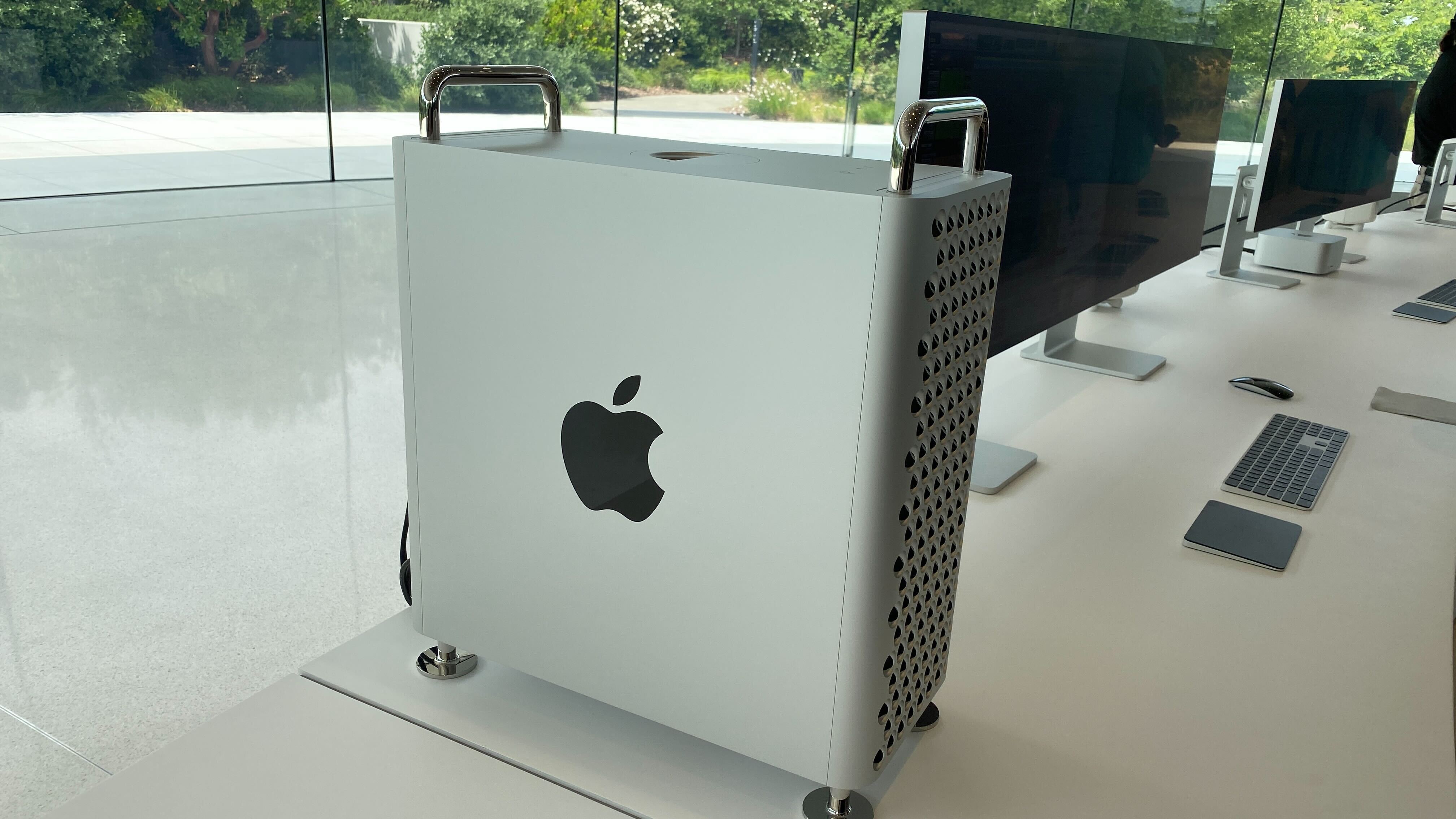
Benchmarks of the Apple M2 Ultra's GPU appear to have leaked online. Today, we spotted various social media posts sharing Geekbench GPU compute scores and GFXBench Aztec Ruins scores. On the surface, these results seem to show that the GPU in the new M2 Ultra is highly formidable, offering GPU compute performance somewhere between a GeForce RTX 4070 Ti and RTX 4080. But we need to step back a bit and explain precisely what it is we're looking at.
We reported upon the new Apple M2 Ultra SoC reveal during the firm's annual WWDC earlier in the week. The chip will arrive in updated Mac Studio and Mac Pro designs, which are scheduled to ship next week. However, someone appears to be testing these new Mac computers/processors before consumers can get hold of them, as a raft of benchmarks has appeared online recently.
Yesterday, we picked through a selection of Apple M2 Ultra benchmarks, focusing on the SoC's CPU core performance. Today, we will look more closely at the potential compute capabilities of the M2 Ultra's GPU, thanks to the Geekbench and GFXbench leaks mentioned in the intro.
M2 Ultra Geekbench 6 Compute Benchmarks
It looks like several pre-release M2 Ultra Apple Mac system users have run Geekbench 6's Metal and OpenCL GPU benchmarks. Apple's Metal API is a proprietary graphics API developed by the firm for fast 'direct to the metal' hardware addressing, like an Apple optimized parallel to Microsoft's DirectX.
While these are very interesting synthetic compute benchmarks, we look forward to some thorough real-world testing of the new Apple Macs with M2 Ultra processors, shortly, particularly in gaming, which has been a pain point for Apple's chips.
Note that GPU compute tends to scale far better with multi-chip approaches than GPU graphics — think about Ethereum mining back in the day, where you could connect eight (or more) GPUs to a single modest CPU via PCIe x1 connections and they would all mine at basically 100% of their maximum performance. Not all compute workloads scale that well, but it's still very different than the scaling traditionally seen with real-time graphics used in games.
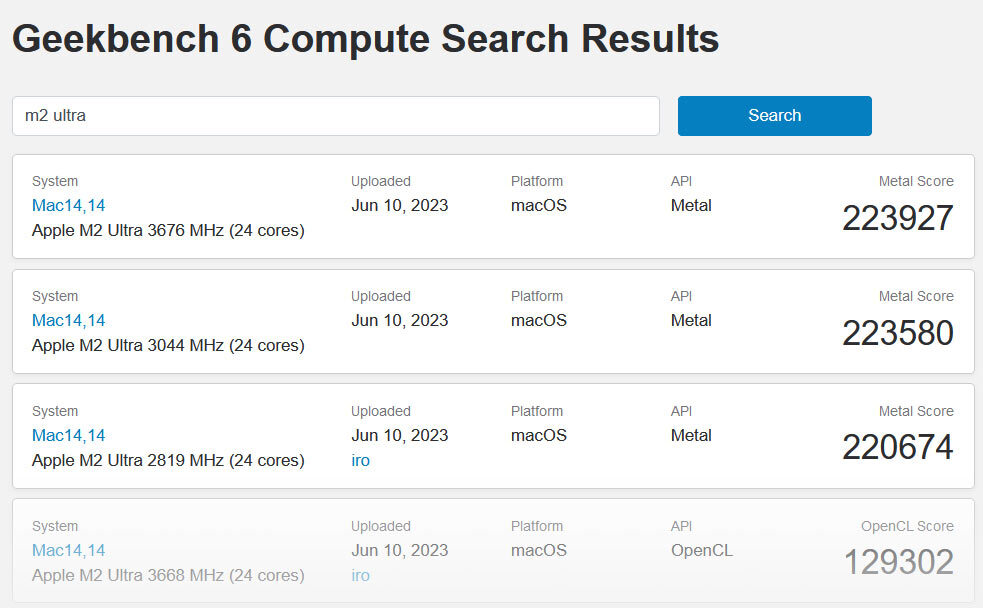
The new M2 Ultra chip's GPU, featuring up to 76 integrated graphics cores, looks impressive compared to the previous gen M1 Ultra with its maximum 64 graphics cores. In a direct comparison using Geekbench 6, the new-gen M2 Ultra scores about 220,000 or thereabouts, compared to about 155,000 on average for the M1 Ultra.
By this metric, M2 Ultra is over 40% faster than its predecessor in GPU compute tasks. It only has around 10% more graphics cores, so Apple has done well to achieve this scale of uplift.
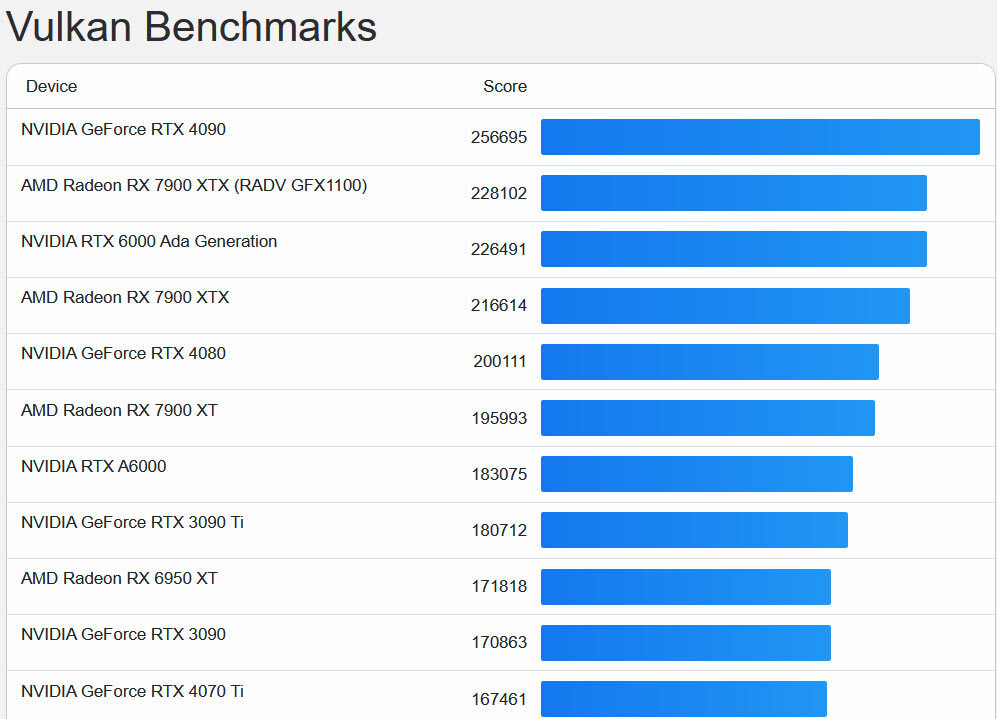
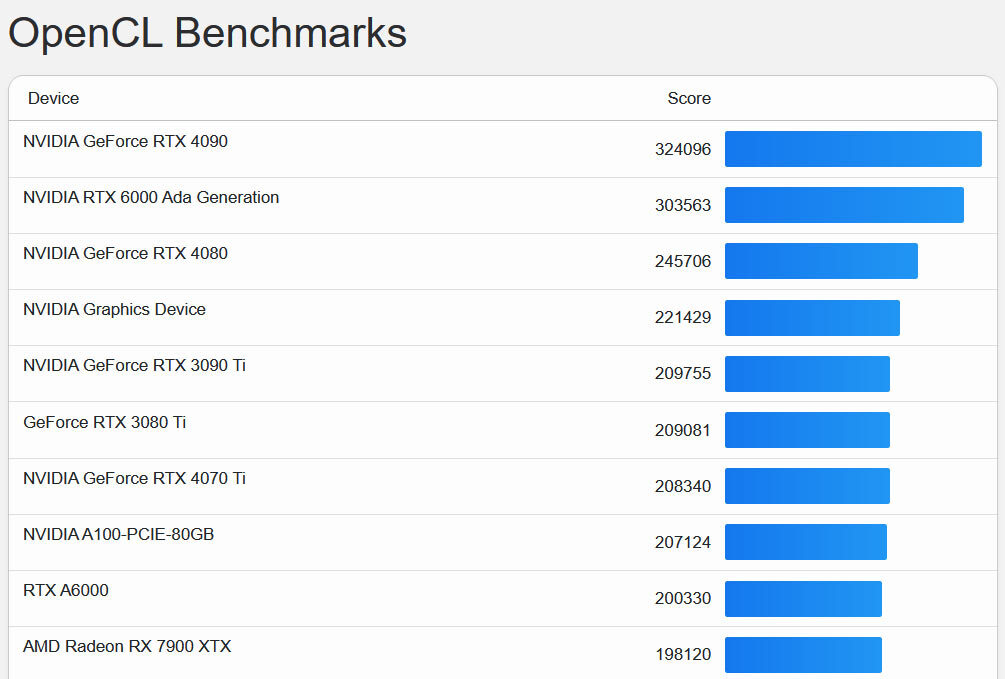
Turning to a different comparison, the new Apple M2 Ultra's 220,000 Geekbench 6 Compute scores (Metal) sit between the GeForce RTX 4070 Ti (208,340 OpenCL) and RTX 4080 (245,706 OpenCL). For a direct Geekbench 6 OpenCL comparison, the Apple M2 Ultra Open CL scores of about 155,000 are much closer to PC GPUs like the Nvidia RTX A5000 and AMD Radeon RX 6800 XT.
Again, we need to note that Geekbench 6 OpenCL compute performance does not usually translate well to actual gaming workloads. Synthetic Geekbench 6 performance is very different from real-world graphics.
M2 Ultra GFXBench Benchmarks
Another user has put their M2 Ultra-powered Apple Mac through the GFXBench test suite. In the 4K Aztec Ruins offscreen tests, the new Apple SoC is over 55% faster than its predecessor. This seems to be an even better result than the Geekbench 6 GPU compute comparison. Theoretically, it should also give a better indication of 3D accelerations / gaming performance uplifts, since this is a graphics workload rather than compute.
However, GFXBench is not an ideal desktop GPU comparison tool as it doesn't usually scale well with the highest-end graphics hardware. The Aztec Ruins benchmark is more appropriate to smartphone SoCs than to GPUs like RTX 4070 Ti. Furthermore, we need to focus on the GFXBench "offscreen" tests, which assesses the rendering power of the GPU without worrying about the display resolution in use. Considering the entire benchmark suite weighs in at less than 1GB, it's a safe bet that it's not very representative of modern games that can total more than 100GB.
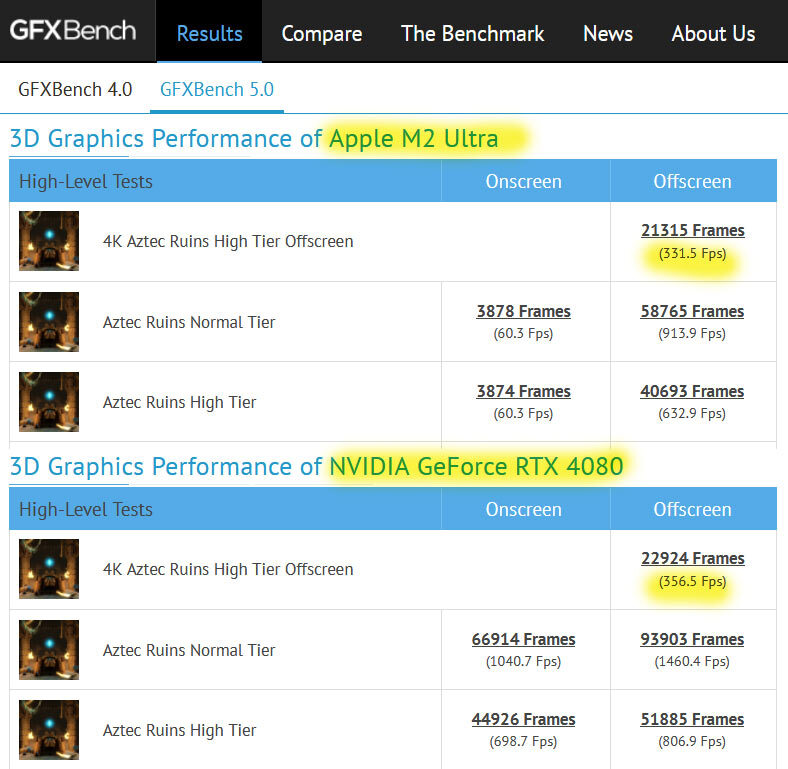
The screenshot above shows that the Apple M2 Ultra can achieve nearly 315 FPS in the 4K Aztec Ruins high-tier offscreen test (Metal API). Above, we mentioned that this score is over 55% faster than the M1 Ultra. A comparable score on the PC platform would again be something between the GeForce RTX 4070 Ti and RTX 4080 (DX12 API).
Big spoonfuls of salt are required here. Ideally, we need to see performance in games and other graphics and compute applications rather than these synthetic workloads that may not be representative of anything truly useful. We look forward to seeing some thorough real-world testing of the new Apple Macs with M2 Ultra processors, which should be available next week.





.jpg?w=600)

